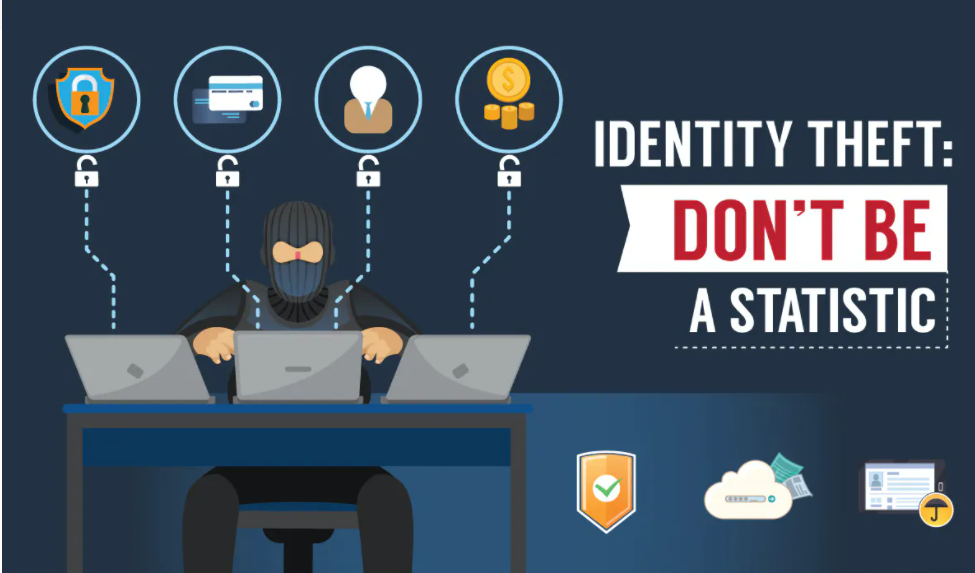Identity theft is a serious crime that happens when someone essentially steals another person’s identity and poses as them. Criminals steal a victim’s personal data, including the Social Security number or the equivalent for those not in the US, and use the information to impersonate them. This can be done for a variety of reasons, though it’s usually because of money.

If your identity is stolen, criminals can get into your bank accounts and steal money, open new credit cards, steal your tax refunds or relief checks, etc. Identity theft is very serious and needs to be reported to law enforcement in all cases. It’s also very important to notice when someone has stolen your identity early on as you can avoid serious consequences that way. In very serious cases, recovering an identity can cost thousands of dollars, cause a lot of stress, tarnish reputations, cause legal issues, etc. The sooner you become aware that someone is using your identity, the easier it will be to resolve. Nowadays, it’s essentially impossible to prevent identity theft as it usually happens because of no fault of the victim. However, it is possible to notice it happening before it becomes truly serious.
How to protect yourself from identity theft
- Monitor your transactions and credit card statements regularly.
It’s strongly recommended that you check your transactions and credit card statements on a regular basis. This can easily be done via online banking. If you do not recognize any transactions or notice something suspicious, report it to your bank.
- Review your credit report at least once a year.
If possible, check your credit report thoroughly at least once a year for anything suspicious. If you notice anything out of the ordinary, report it. You can also sign up for credit monitoring services that would alert you if there are any changes.
- Do not let your credit card leave your sight.
Depending on where you are located, credit card skimming may be a common occurrence. Even if it’s not, you still need to protect your credit cards and not allow them out of your sight even in seemingly harmless situations. For example, if you’re trying to pay at a restaurant with your credit card and the waiter intends to take your credit card out of your sight, do allow them.
- Before giving away any of your personal information, make sure to find out who you’re dealing with.
Scammers often make calls to victims pretending to be from known companies or organizations in an attempt to trick them into revealing their personal information. They use various manipulation techniques to pressure victims into revealing such information without them even realizing they’re doing it. Thus, whenever someone contacts you asking for personal information, question who they are and ask them to prove their identities. If possible, look into the company and call them back using the phone number from their official website. And remember, there is certain information that you should never reveal to anyone, especially over the phone. And that information is your login credentials, bank account information and passwords, PIN numbers, and financial information.
- Do not access sensitive accounts on public WiFi.
Because public, even password-protected, WiFi is not safe, you should not use it to access sensitive accounts, such as emails, social media, online banks, etc. Public WiFi allows those skillful enough to monitor traffic and potentially steal sensitive information. You can securely connect to public WiFi if you do it via a virtual private network (VPN) because it encrypts traffic. However, keep in mind that there are many fake VPN programs so make sure to do research before downloading one. Alternatively, you can use your mobile data to access sensitive accounts.
- Protect your computer with anti-virus software.
Having anti-virus software installed on your computer is essential not only to prevent data loss but also to protect against identity theft. A malware infection on a computer can steal all kinds of information, including financial and highly sensitive data. To protect against that, install a reputable anti-virus program with real-time protection and have it enabled at all times.
- Learn the signs of phishing or scam attempts.
A lot of information (login credentials, passwords, credit card information, etc.) can be stolen using various phishing techniques, thus it’s important to be familiar with what phishing might look like and how to recognize it. There are many reliable resources to be found on phishing and how to recognize it so all you need to do is look into it.